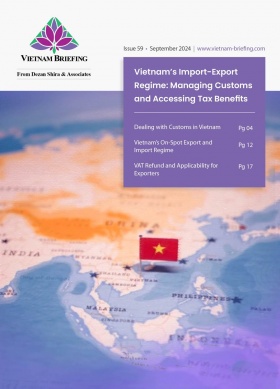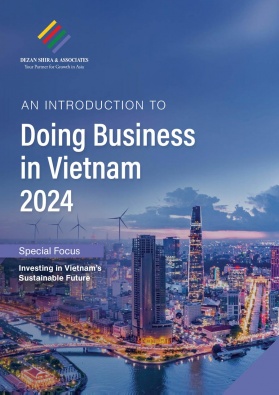Vietnam Fintech and Payroll Innovation: Understanding the Concept of Earned Wage Access Services
Earned Wage Access (EWA) services is a relatively new concept in Vietnam’s fintech market, introduced in 2019 with the arrival of several key players. These services present a lucrative opportunity for investors, aligning with Vietnam’s efforts to promote financial inclusion.
Experts have long highlighted the vulnerability of Vietnam’s middle- and low-income workers to predatory lending, as many lack access to traditional banking services. A 2023 survey by Vietnam’s Policy and Law Department (PLD) of 3,000 local employees revealed that 17 percent of workers regularly borrow due to cash shortages between paydays.
This issue calls for solutions that bridge the funding gap without imposing additional financial strain on workers. Flexible pay models like EWA are emerging as viable alternatives, providing employees with easier access to earned wages and fostering financial inclusion and digitalization in Vietnam.
Demand for flexible pay in Vietnam
In addition to the 2023 PLD survey, earlier research highlights the growing demand for flexible pay in Vietnam. A 2022 report by fintech startup GIMO noted that while Vietnam’s population approached 100 million, only slightly more than half were of working age (over 15 years), and just 20 percent had access to formal financial services.
Surveying 15 companies, GIMO found that 53 percent of senior managers were interested in offering flexible salary options. However, concerns about increased workload for departments (55.55 percent) and added costs (25 percent) posed barriers to implementation, paving the way for flexible pay solutions in Vietnam’s market.
GIMO’s report also monitored the initial impact of flexible pay adoption. It showed that 76 percent of surveyed employees received flexible salaries 1-2 times per month, with 56 percent receiving advances below VND 4.5 million (US$183) per month. Employees reported significant benefits:
- 80 percent felt more satisfied with their company’s policies after receiving flexible pay;
- 79 percent experienced reduced financial stress; and
- 40 percent reduced or stopped using informal financial services.
National Financial Inclusion Strategy 2025
Vietnam’s National Financial Inclusion Strategy 2025 prioritizes financial stability and inclusion for all citizens. The strategy aims to provide individuals and enterprises with convenient and affordable access to financial products and services, with a focus on low-income and vulnerable groups, as well as micro, small, and medium enterprises (MSMEs).
The State Bank of Vietnam (SBV) is tasked with expanding access to essential financial services and products, including payments, money transfers, savings, loans, and insurance, through qualified providers.
What is Earned Wage Access?
Earned Wage Access is a financial technology that promotes employee financial wellness by allowing workers to access a portion of their wages before payday, unlike the traditional model of waiting until the end of the month. This tool improves enables employees to cover unexpected expenses—such as medical bills or school fees—without falling into debt or relying on predatory lenders.
A common misconception is that EWA functions as a loan. In reality, it simply allows employees to access wages they’ve already earned, with the amount deducted from their next paycheck. This process avoids interest or additional fees and ensures the money is deposited directly into employees’ bank accounts for convenience.
Is the concept of Earned Wage Access legal in Vietnam?
Vietnam has legislation addressing advance and flexible payments for workers, though its effectiveness remains limited, and further amendments are needed to enhance its applicability.
Regulation on advance salaries
Under Vietnam’s current labor law, employees and employers can agree on various salary payment structures, including hourly, daily, weekly, monthly, by product, or by contract. Most businesses opt for monthly payments to maintain stable cash flow, with the option to provide salary advances for employees in need. However, this option is not always feasible, as the law mandates salary advances only in specific circumstances.
As outlined in Article 101 of the 2019 Labor Code, an employee may receive an advance payment in the following cases:
- Mutual agreement: An employee may request an interest-free salary advance under conditions agreed upon with the employer.
- Performing citizen duties: The employer must provide an advance for days the employee temporarily leaves work to fulfill civic duties lasting a week or longer. The advance cannot exceed one month’s salary, and the employee must repay it.
- Taking annual leave: An employee is entitled to an advance payment equivalent to the salary for the days of their annual leave.
Outside of these cases, requests for salary advances may face challenges, such as disrupting cash flow management and placing additional burdens on human resources and accounting teams.
No existing legislation directly dealing with EWA
Vietnam has yet to introduce specific regulations governing Earned Wage Access, though its recent emergence has been acknowledged by local media and authorities.
According to Article 97.2 of the 2019 Labor Code, employees receiving monthly wages can be paid either monthly or bi-monthly, with payment times agreed upon by both employers and employees to ensure a periodic payment cycle. However, strictly adhering to a monthly pay schedule limits flexibility when employees need early access to their wages. Changing the payment frequency to hourly, daily, or weekly is not a viable long-term solution, as employee needs vary.
In the context of EWA, defining it as a “flexible wage advance model” could align it with existing labor laws, specifically Article 101 of the 2019 Labor Code. This article allows employees to request wage advances by mutual agreement, without interest charges. Under this model, employers can permit employees to access part or all of their earned wages before the scheduled payday without altering the established pay cycle.
If an employee does not fully utilize their wage advance, the remaining salary is disbursed on the agreed payment date. In months where early access to wages is not required, payments are made in full as per the contract terms. This model allows employees to access their earnings earlier while complying with the legal requirement for periodic wage payments.
Evolution of EWA services: Vietnam and the US
Vietnam’s Earned Wage Access market is still in its early stages, with only a few key players emerging since 2019, such as GIMO, Vui App, and Ekko. These platforms are part of a broader surge in financial technology (fintech) investment, driving growth in Vietnam’s fintech sector.
According to Robocash Group, Vietnam’s fintech market is projected to reach a valuation of US$18 billion by 2024, with venture funding having increased more than fivefold between 2016 and 2021. Notably, around 70 percent of Vietnam’s population is either unbanked or underbanked, presenting a significant opportunity for fintech solutions like EWA.
Internationally, US fintech companies Rain and Clair have raised over US$100 million for their earned wage access solutions, despite the sector facing increased scrutiny. In the US, Nevada and Missouri have become the first states to regulate the EWA industry, requiring providers to obtain licenses.
Opportunities and challenges for businesses
Given the rising demand, investor interest, and relatively relaxed regulatory environment in Vietnam, businesses and startups looking to enter the Earned Wage Access services space have lucrative opportunities ahead.
While EWA services can help Vietnamese workers feel more financially secure, scaling financial wellness programs to millions of workers presents a significant challenge for “flexible pay” applications.
Since flexible salary solutions involve sensitive employee salary data, many businesses are concerned about information security. At the same time, the latest draft of the Personal Data Protection Law (PDPL) aims to strengthen Vietnam’s legal framework for personal data protection, establishing a clear basis for safeguarding personal information. Therefore, companies in this sector must ensure robust data security and minimize disruptions to business systems during data integration.
Additionally, workers without bank accounts—still representing up to 60 percent of the workforce, many of whom receive their salaries in cash—will be unable to access flexible salary solutions. Reaching this segment is a challenge. To overcome this, companies offering flexible salary payments must focus on onboarding and educating new customers. They should also guide businesses and employees in adopting and using digital financial tools.
About Us
Vietnam Briefing is one of five regional publications under the Asia Briefing brand. It is supported by Dezan Shira & Associates, a pan-Asia, multi-disciplinary professional services firm that assists foreign investors throughout Asia, including through offices in Hanoi, Ho Chi Minh City, and Da Nang in Vietnam. Dezan Shira & Associates also maintains offices or has alliance partners assisting foreign investors in China, Hong Kong SAR, Indonesia, Singapore, Malaysia, Mongolia, Dubai (UAE), Japan, South Korea, Nepal, The Philippines, Sri Lanka, Thailand, Italy, Germany, Bangladesh, Australia, United States, and United Kingdom and Ireland.
For a complimentary subscription to Vietnam Briefing’s content products, please click here. For support with establishing a business in Vietnam or for assistance in analyzing and entering markets, please contact the firm at vietnam@dezshira.com or visit us at www.dezshira.com
- Previous Article Vietnam’s First Draft of New Personal Data Protection Law (PDPL) Released for Public Comments
- Next Article Vietnam Considers 9-Day Tet Break for 2025








